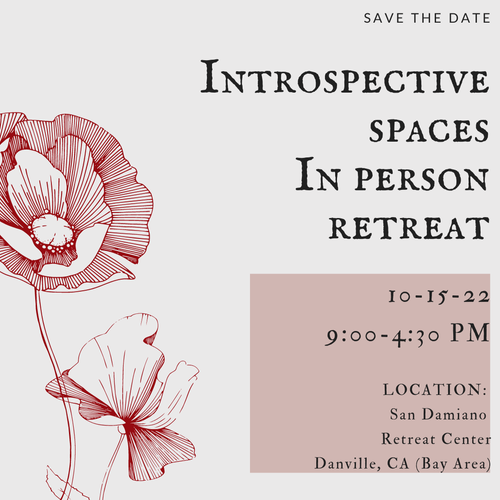The Case for Community Care in Healthcare
October 11, 2022

If I could trace a recurring thread through my hardest days as a healthcare worker, a common theme would be the feeling of isolation with my struggles.
I’ll never forget one of my earliest days as a new physician attending. I was working in the neonatal intensive care unit, caring for ten premature babies with complex medical problems. I was drowning in tasks within a couple hours of my shift and was scrambling to write all the patient care orders and clinical notes. Even though I was surrounded by people, I felt so alone in struggling to figure out how to care for patients, grappling with care plans I disagreed with but felt helpless to voice as a new clinician. In my brief pauses throughout the day, I would daydream to myself about all the ways I wished our healthcare system was different. It was only in those rare moments where I felt comfortable being vulnerable and sharing my experiences with my co-workers or friends in healthcare that I felt deep relief that I wasn’t the only one experiencing those feelings. I felt much more equipped to navigate my work. On the days where there was no time or space to process with others, the weight by navigating this suffering by myself amplified the emotional toll it took.
Our sense of isolation as healthcare workers is exacerbated by the structures of our healthcare system. Due to structural limitations such as staffing issues, long workdays, and inequitable access to care, we spend our days trying to finish all the “tasks” by the end of our shift. Most days, it doesn’t feel like there is enough time to write all the orders, administer all the medication, update all the families. Taking a few minutes to check in with ourselves is a gift; checking in with our co-workers and patients? A luxury.
Yet, many of us were drawn to healthcare due to a deep sense of interconnectedness and a commitment to justice and relationship. For myself, my Buddhist and Hindu faith backgrounds are part of what inspired me to become a physician, to pursue a career dedicated to service of others. Many days, these ideals aren’t enough to sustain me.
Buddhist monk Thich Nhat Hanh uses the term “inter-being” to describes the idea that we are all interconnected, that the challenges and joys of others also impact us. Learning about this term helped me understand why I struggled so much on the days I felt alone at work and why most of the wellness interventions I was offered in the healthcare setting – meditation apps, yoga classes, ice cream parties – were momentarily helpful but not sufficient to address my distress. Individual wellness practice, stripped of their traditional practice in community, leave an important component missing.
Individual wellness practice, stripped of their traditional practice in community, leave an important component missing.
Many faith communities, including those who share my Buddhist and Hindu traditions, speak definitively of the need to care for each other as we care for ourselves in order to build accountability and sustainability in our practice. Sangha, the term for Buddhist spiritual community, is a core tenant of Buddhism. Our sangha is meant to be a source of refuge – a place where we can turn in times of need, when we need advice or support or want to offer support and kindness to those around us. A sangha is an important support on our spiritual paths because it reminds us that the work we do for our own well-being is inexplicably intertwined with the well-being of the world.
This value of community care is found in many faith traditions. As my friend Laura shares from her contemplative Christian background, “I would argue for community care because it’s what we’ve wanted all along, and why we joined healthcare in the first place. For most, healthcare is a calling, and a sacred one at that. Often our faith and worldview backgrounds that harbor similar views of connectedness and desire for mutuality and service are what drew us to this work.”
This deep desire to build community spaces for healthcare workers is what inspired Laura and myself to start Introspective Spaces. Inspired by our own interfaith, interdisciplinary friendship (she – a contemplative Christian nurse and myself – a Buddhist/Hindu physician), we started our organization dedicated to reflection and connection for women in healthcare, to hold space to honor our identities across our professions, cultural backgrounds, and spiritual identities.
Creating space to care for ourselves and each other is essential for all of us, especially those of us dedicated to caring for the lives of others. Finding the common threads in our stories and experiences allows us to feel less alone, even if we work in different sectors of healthcare and come from very different backgrounds. Without creating space for sangha or community in healthcare, an essential factor in our wellbeing is missing.

We are so excited and deeply humbled by the chance to offer our first In-Person Retreat for Healthcare Workers on October 15 in Danville, California. For both of us, space to be in community with others is necessary for well-being and healing as healthcare workers. We hope this retreat is a space for our peers to be able rest, reflect, and connect with each other in service of building a world of interbeing. To care for our patients, we must first commit to care for ourselves and each other.
Anu Gorukanti, MD (she/hers) is a public health practitioner, pediatric hospitalist, and co-founder of Introspective Spaces, a social venture committed to building reflective space and community for women in healthcare. She is also a member of the Sacred Journeys and Witness fellowships. She cares deeply about the well-being of her colleagues in healthcare and is passionate about healthcare reform to create equitable and compassionate care for patients and communities. In her free time, she loves to photograph landscapes, learn to dance and spend time with her wonderful husband, friends and family.
Share
Related Articles
American Civic Life
American Civic Life
American Civic Life
Eboo Patel and Wajahat Ali: Is “Interfaith America” Even Possible?



